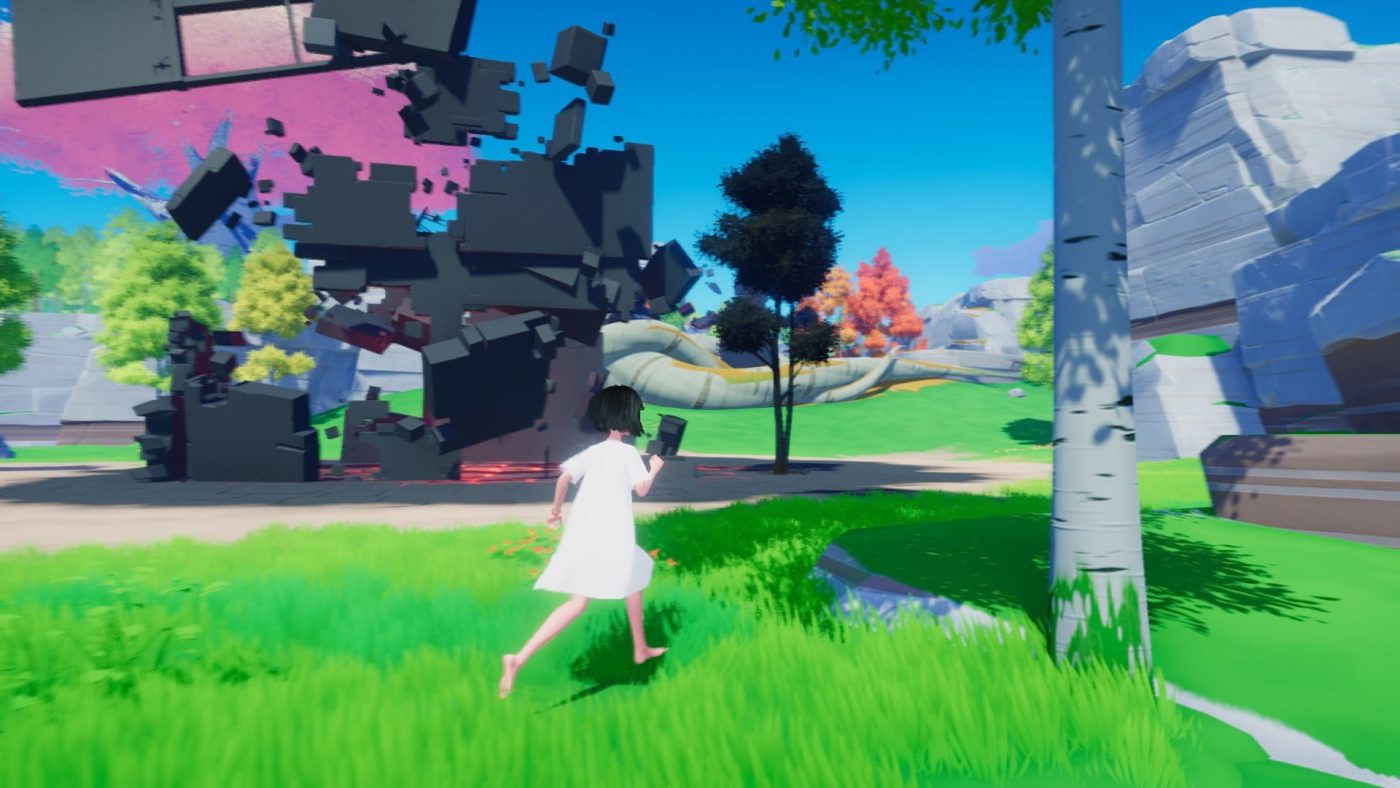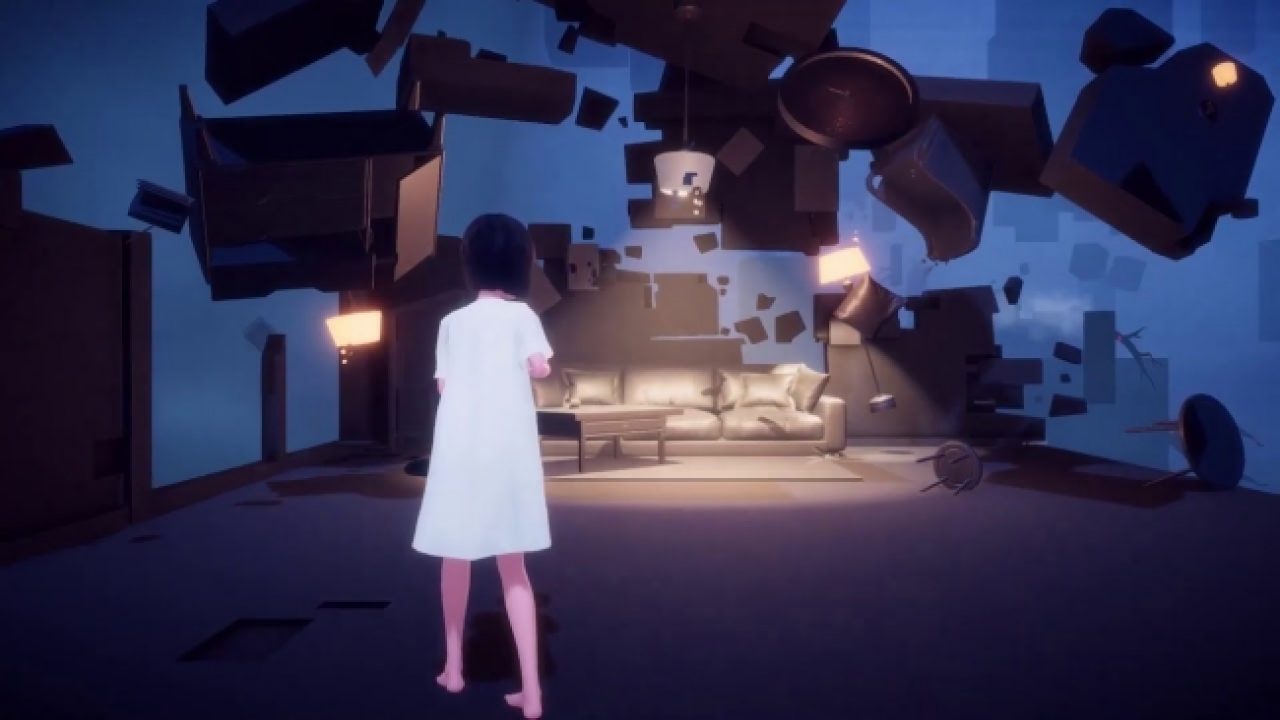If life is going too well and I want to knock myself down a peg or two, I play a puzzle game. Ever Forward is the latest intelligent and attractive platform-and-environmental head scratcher that feels engineered to make me look dumb.
Taking visual cues from the likes of RiME, you play a young girl marooned on a Greco-paradisiacal island. Wandering around this hub, you explore ruined buildings that transport you to strange, hi-tech worlds full of vertiginous heights and floating platforms.
These intimidating arenas are presided over by security drones, pivoting like CCTV cameras, that gate-keep your progress through the unforgiving, sterile environments. Your input is deliberately limited, meaning your brain (rather than your avatar) has to do the heavy lifting. Neon-lined boxes can be extruded from the floor and walls, then placed or thrown to activate buttons or distract your electronic overseers’ attention.

Starting off simple, these tasks pretty quickly escalate into stern tests of your psychic mettle. As the puzzles mostly revolve around distracting the cameras so you can squeeze past them, timing is crucial. The gap between success and failure is often measured in millimetres.
Other aspects are added to the environment as the game goes on — force field walls, teleport tubes, elevating platforms — but the variables remain largely the same: sneak around; bamboozle the AI; don’t get caught.
Pivoting your game around a small set of factors is a very clean approach, but it is limited and — I got to feeling — sometimes unfair. There are many tasks that depend on split-second timing, where you have to flip a box into the right position then scurry around the drones’ cones of sight with a timing and precision that isn’t always easy to achieve.
You see, your avatar’s speed is dropped from running to walking pace automatically when in close proximity to the drones. Superficially this works in your favour, but wresting control away robs you of your agency at the key bits where you want discretion over when to speed up or slow down.
It has the side-effect of making the challenges feel prescriptive, as if there is only one solution. That can be a bit of a problem when they’re meant to depend on physics, gravity, inertia and timing. It’s like fusing Portal and Metal Gear Solid’s VR missions, but losing the delightful empowerment of the former, the precision and agency of the latter.

It also feels a bit churlish to criticise the visuals, as they’re crisp and lovely, but I couldn’t help feeling this aesthetic’s a well-trodden path by now. There are some simple-looking cutscenes that further the plot between ‘missions’, and these are a welcome change of visual pace. The techno dimension, though, is reminiscent of everything from MGS’s VR levels right through to Astral Chain and Control, and feels like an opportunity missed to carve out a new design philosophy.
As a package, Ever Forward is fine. It’s ‘OK’. It makes you think, can be exacting, and occasionally tips over into frustratingly obscure. The fact that it navigates these environmental puzzle game curves and berms in such a familiar way is perhaps its largest flaw. There’s nothing egregious here, nothing shocking. On the flipside, there’s nothing startling. Nothing experimental. Competent? Yes. Electrifying? No.
It’s smart enough to make me feel outclassed and sometimes overwhelmed, but that’s not a very high obstacle to clear and it’s what I expected. What was a surprise was that, in spite of the charm and guile, it felt like a game I’d played many times before. Developer Pathea has clearly got all the tools needed to make tight, intelligent games. They now need to think how their next release can solve that most elusive of puzzles: how to bring the magic.

